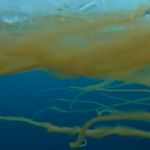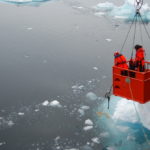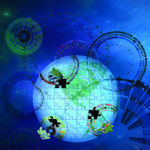Since its launch 25 years ago, the Genomes OnLine Database has matured from six projects on a spreadsheet into a flagship genomic metadata repository, making curated microbiome metadata that follows community standards freely available, and enabling large-scale comparative genomics analysis initiatives.
JGI Adds Actinobacteria Chapter in the Genomic Encyclopedia of Bacteria and Archaea
In Cell Genomics, an international consortium led by researchers at the Joint Genome Institute team generated 824 new Actinobacteria genomes, which were were combined with nearly 5,000 publicly available ones and 1,100 metagenome-assembled genomes (MAGs) reconstructed from sequenced environmental samples in a previous study.
JGI Helps Shed Light on How Antarctic Algae Have Adapted to Cold
In Nature Ecology and Evolution, researchers from the Chinese Academy of Fishery Sciences, the University of East Anglia, and the JGI have explored the genome of the polar algae Microglena sp. YARC. The green alga harbors extra genes for proteins requiring zinc, and those genes turn out to be key for the phytoplankton’s ability to live in cold polar waters. Learn more here on the JGI website.
JGI Helps Uncover How Climate Change Threatens the Base of Polar Oceans’ Food Webs
The cold polar oceans give rise to some of the largest food webs on Earth. And at their base are microscopic, photosynthetic algae. But human-induced climate change, a new study suggests, is displacing these important cold-water communities of algae with warm-adapted ones, a trend that threatens to destabilize the delicate marine food web and change the oceans as we know them.
The JGI Community Sequencing Program enabled the discovery of these worrisome circumstances for algal communities. Click here to read the news release on the JGI website.
JGI Leads Large-Scale Effort to Develop a Genomic Catalog of Earth’s Microbiomes
Microorganisms play key roles in regulating global nutrient cycles but only a small fraction has been identified and an even smaller number has been successfully cultured in a lab for study. In Nature Biotechnology, the known diversity of bacteria and archaea has now expanded by 44% through a publicly available collection of more than 52,000 microbial genomes from environmental samples. Of that number, 70% of the novel genome sequences were previously unknown, not yet cultured in the lab. The work results from a JGI-led collaboration involving more than 200 scientists around the world, KBase and NERSC. Read more about the genomic catalog of Earth’s microbiomes on the JGI website.
Was this page useful?








